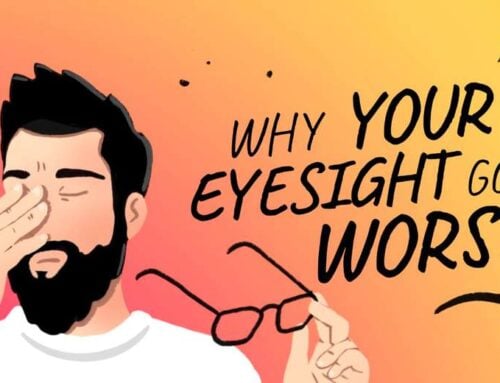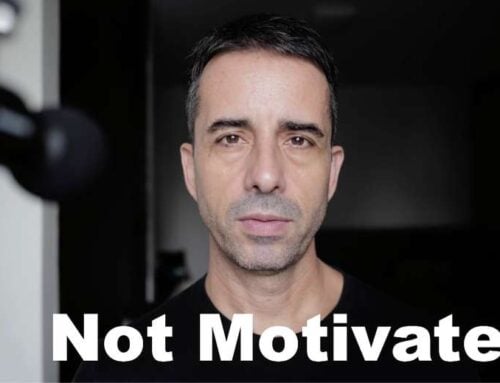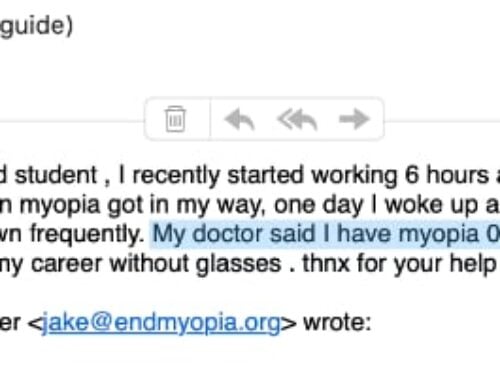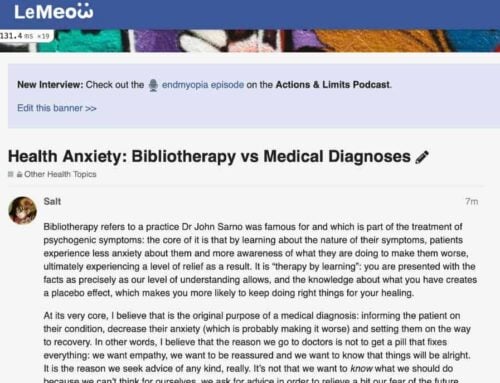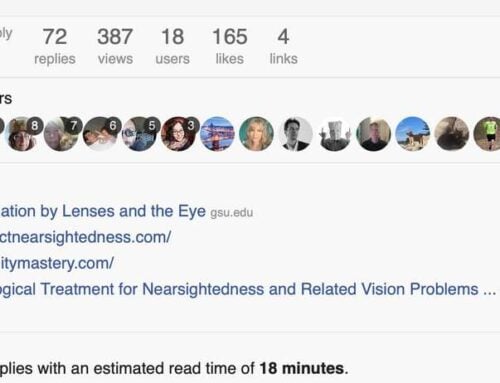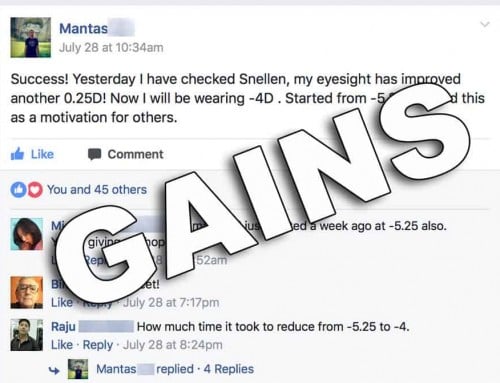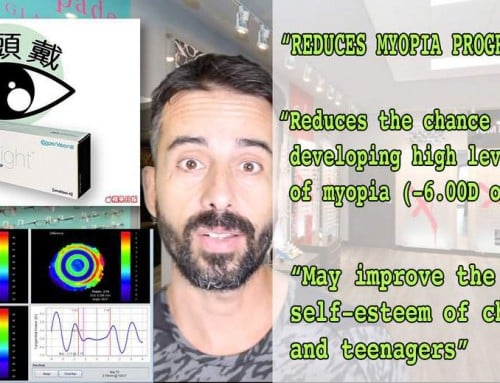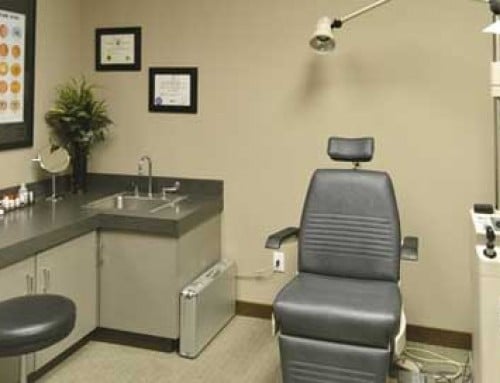I get a fair amount of e-mail, asking about the reasons that so much of the status quo of vision health is centered around selling glasses and contact lenses. My answer is always the same: I don’t believe that there is malice, at the heart of the matter. I myself, having been educated in the status quo, have only had benign experiences. We learned a whole lot about the biology, symptoms, diseases, conditions, assessments, medical tools.
Of course, there is the fact that selling prescription eye wear is a multi-billion dollar (and growing) business. But the fact that the core product (minus lenses) make our vision worse, just is not part of anyone’s job description.
Lens makers are focused on making better, higher grade, improved optical quality lenses. They are focused on marketing, promoting, and selling their product. It only makes sense that there isn’t a mandate at the corporate HR department to hire staff to find out how to make the product irrelevant, or even if it isn’t a great product. The same holds true downstream. The shops selling these lenses, and frames, are focused on the day to day activity. Assess the consumer’s vision deficiency, write a prescription, fill the prescription. If your average day is anything like theirs, there isn’t much time (or sense) in researching and exploring how to make themselves obsolete.
It is the dependence that their advice creates though, for you, that should be a key concern for you. It’s not so much about their motives, than your freedom to enjoy clear vision, without having to basically rent it from them (in the form of corrective lenses).
The second question, from a lot of people asking about how all that mainstream advice could be wrong, is also logical: Why trust me, Alex, and this alternative?
To that I say, don’t. Don’t trust me. Don’t take my word for it. All you may want to do, if you don’t enjoy wearing glasses, and stronger ones every year, is to evaluate your own dependence. Is it flexible? Do you depend on them exactly -4.5D? Or -6.75D, and -1.25D astigmatism correction? Take a look at the centimeter calculator. Take a look at the principle of active focus. Can you increase your close-up distance by as little as a single centimeter, with some active focus practice?
If you improve once centimeter, what is to stop you from improving ten?
There is the contingent of ‘experts’ who will concede that there is some room to improve. But, they will tell you, that’s finite. You can reduce ciliary myopia, but not axial myopia. They say, after a few centimeters, improvement will stop.
But of course, it doesn’t. Not if you keep up the proper practices (see The Four Pillars).
Only a fundamentally healthy eye will improve. There is no truly logical reason that if you can get your eyesight better by -0.25 diopters, that you wouldn’t be able to continue that path, until your eyes are back to where they were, before you went down the glasses road. And I realize that for many readers of this site, this is already obvious, and you are well past the point of needing this kind of fundamental discussion. Every so often though, when this question comes up, I prefer to just be able to point to a link on this site, instead of re-writing the same story in another e-mail.
If you are reading this while it is still a new, recent post, please note that I’m about to be on a bit of a summer vacation. Even though I’m somewhat retired, I still end up being a bit less available than usual – I’m still answering forum posts and e-mails, of course, but you might have to find an extra day or two of patience on occasion.
As always, I hope you find time today to enjoy some healthy eyesight!






